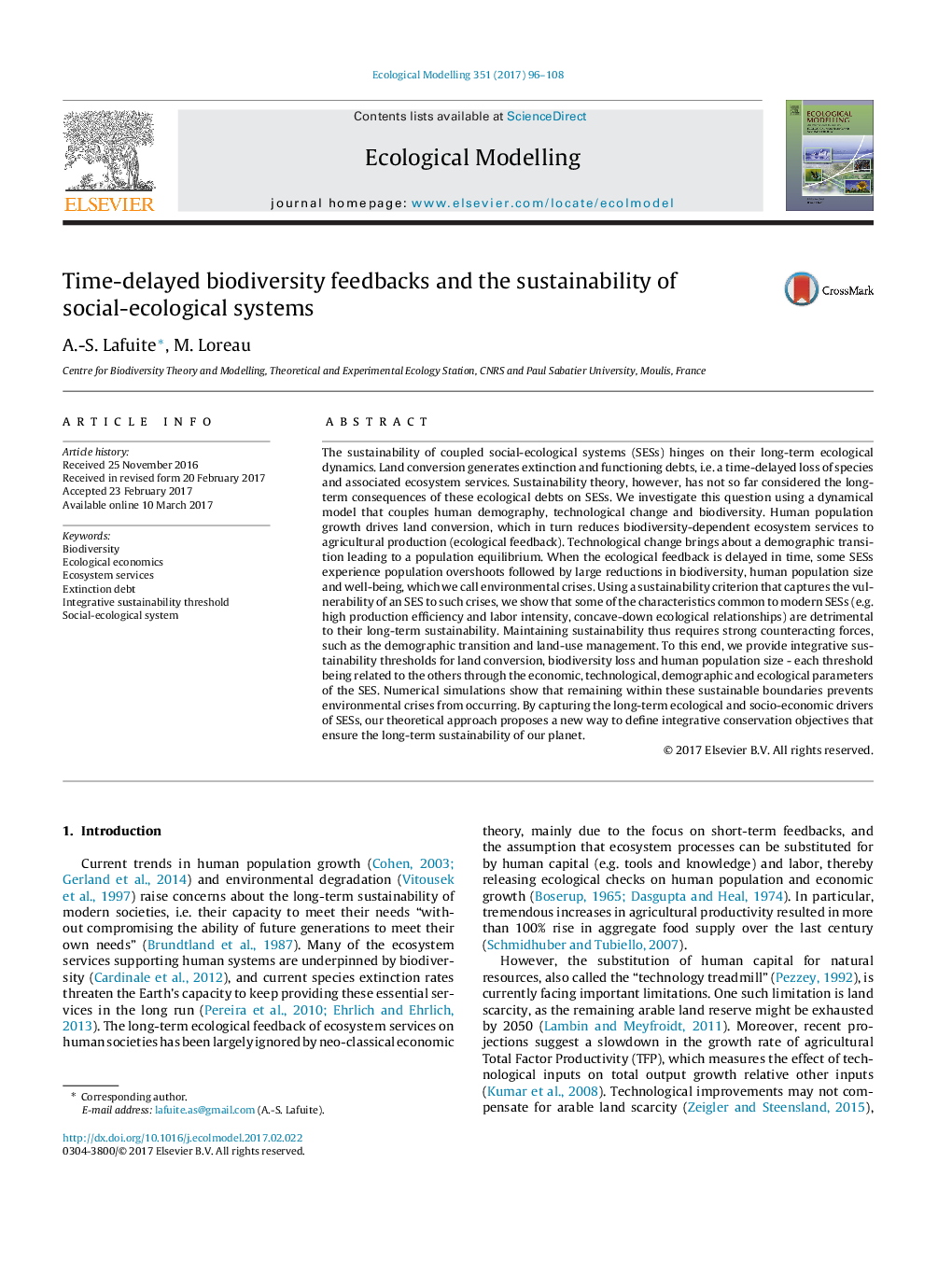| کد مقاله | کد نشریه | سال انتشار | مقاله انگلیسی | نسخه تمام متن |
|---|---|---|---|---|
| 5742223 | 1617396 | 2017 | 13 صفحه PDF | دانلود رایگان |
- We explore the long-term sustainability of coupled social-ecological systems (SESs) using dynamical system modelling.
- Our model includes a time-delayed feedback of biodiversity and associated ecosystem services on human population growth.
- Large ecological time lags lead to environmental crises, i.e. population overshoots followed by collapses of biodiversity, human population size and well-being.
- We provide an integrative land conversion threshold that ensures the long-term sustainability of SESs - given their ecological and socio-economic characteristics.
The sustainability of coupled social-ecological systems (SESs) hinges on their long-term ecological dynamics. Land conversion generates extinction and functioning debts, i.e. a time-delayed loss of species and associated ecosystem services. Sustainability theory, however, has not so far considered the long-term consequences of these ecological debts on SESs. We investigate this question using a dynamical model that couples human demography, technological change and biodiversity. Human population growth drives land conversion, which in turn reduces biodiversity-dependent ecosystem services to agricultural production (ecological feedback). Technological change brings about a demographic transition leading to a population equilibrium. When the ecological feedback is delayed in time, some SESs experience population overshoots followed by large reductions in biodiversity, human population size and well-being, which we call environmental crises. Using a sustainability criterion that captures the vulnerability of an SES to such crises, we show that some of the characteristics common to modern SESs (e.g. high production efficiency and labor intensity, concave-down ecological relationships) are detrimental to their long-term sustainability. Maintaining sustainability thus requires strong counteracting forces, such as the demographic transition and land-use management. To this end, we provide integrative sustainability thresholds for land conversion, biodiversity loss and human population size - each threshold being related to the others through the economic, technological, demographic and ecological parameters of the SES. Numerical simulations show that remaining within these sustainable boundaries prevents environmental crises from occurring. By capturing the long-term ecological and socio-economic drivers of SESs, our theoretical approach proposes a new way to define integrative conservation objectives that ensure the long-term sustainability of our planet.
Journal: Ecological Modelling - Volume 351, 10 May 2017, Pages 96-108
